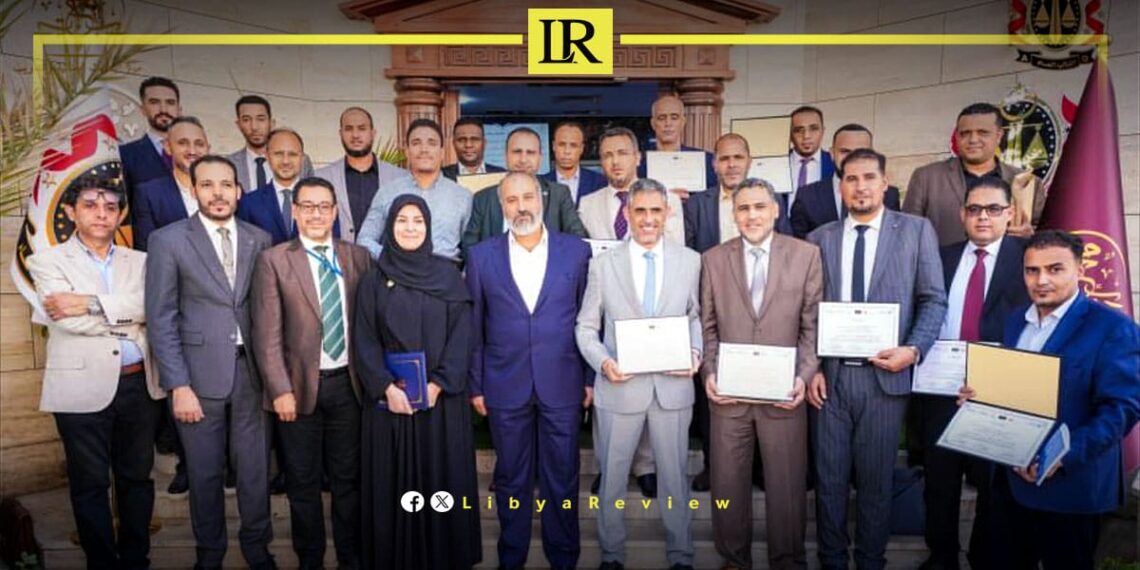The Libyan Center for Criminal Research and Training has concluded a specialized workshop on combating human trafficking and migrant smuggling, held in cooperation with the International Organization for Migration (IOM) and the United Nations Office on Drugs and Crime (UNODC).
The workshop was part of the National Initiative of the Public Prosecution Authority aimed at tackling transnational crimes, and was hosted at the Center’s headquarters in Tripoli.
Twenty prosecutors from the Office of the Attorney General participated in the training, alongside international experts from partner organizations. Discussions focused on irregular migration, the complexities of migrant smuggling networks, and human trafficking crimes — all analyzed from both national and international legal perspectives.
Strengthening Prosecution and International Cooperation
The sessions explored ways to enhance the role of the Public Prosecution Authority in prevention and protection, as well as developing mechanisms for international cooperation to prosecute offenders, dismantle smuggling networks, and ensure justice without impunity.
The initiative also reaffirmed Libya’s commitment to human rights and the rule of law, highlighting the importance of a unified national approach in line with global efforts to combat cross-border crimes.
This workshop is part of ongoing efforts to build the legal and institutional capacity of Libyan authorities in dealing with complex crimes and ensuring victims are protected while perpetrators are held accountable.
Libya has been in chaos since a NATO-backed uprising toppled longtime leader Muammar Gaddafi in 2011. The county has for years been split between rival administrations.
Libya’s economy, heavily reliant on oil, has suffered due to the ongoing conflict. The instability has led to fluctuations in oil production and prices, impacting the global oil market and Libya’s economy.
The conflict has led to a significant humanitarian crisis in Libya, with thousands of people killed, and many more displaced. Migrants and refugees using Libya as a transit point to Europe have also faced dire conditions.
The planned elections for December 2021 were delayed due to disagreements over election laws and the eligibility of certain candidates. This delay has raised concerns about the feasibility of a peaceful political transition.
Despite the ceasefire, security remains a significant concern with sporadic fighting and the presence of mercenaries and foreign fighters. The unification of the military and the removal of foreign forces are crucial challenges.


